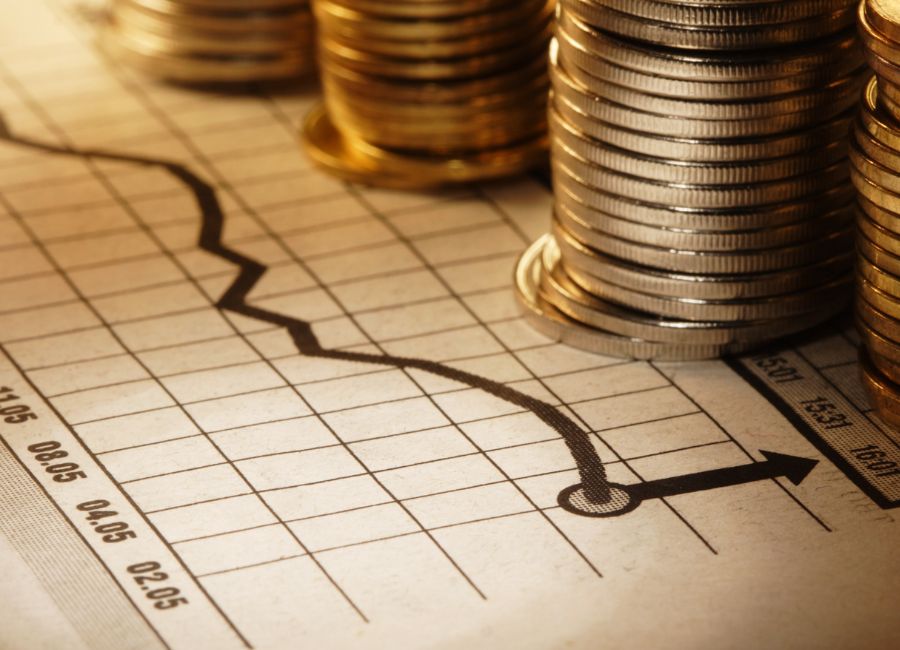There’s no doubt in my mind you’ve heard the terms inflation and recession tossed around these past few months. My goal is to make finances easy to understand and sometimes this economic lingo doesn’t always make sense. I’m going to break down inflation, what it means to be in a recession, and what you can do to protect yourself. These recession tips will help you recession-proof your finances and be GOOD no matter what!
Recession Tips and Guidance
I’m going to break down inflation, what it means to be in a recession, and what you can do to protect yourself.
Let’s tackle inflation first. (P.S. If you like your info delivered via video, check out this Instagram Reel I did about inflation).
Simply put, inflation is the rate (percentage) of price increases on goods or services in an economy (like the U.S.) over time.
This increase in prices decreases the purchasing power of money.
Inflation, at a moderate rate, is natural. Remember when movie tickets used to be $6? Over time, prices increase.
What’s not normal is how fast inflation increases. In June, U.S. inflation rose 9.1% That’s a huge jump. Higher inflation makes it harder for people to keep up – especially when income rates aren’t jumping anywhere near these percentages.
To help keep inflation under control, the Federal Reserve System (AKA the Fed) will raise interest rates.
What does this mean?
Well, higher interest rates make it more cost-effective to keep your money in savings.
Have you seen the high-yield savings account rates going up?! That’s because the Fed is increasing rates.
Higher interest rates also make it less cost-effective to use and carry debt. The increase in interest rates runs across the board – assets and debts.
So, the interest rates will go up on credit cards, mortgages, auto loans, etc.
The goal is to encourage people to reduce spending and keep their money to themselves.
What to be on the good side of increased interest rates? Pay off your debt and build your savings.
Now, let’s talk recession – because it goes hand in hand with inflation.
A recession is when the economy stops growing and starts shrinking. This means unemployment rises and a huge drop in spending. See how inflation ties in? The more expensive things are, the less people want to spend.
Now, let me say this…recessions are a completely normal part of the economy. It’s almost like a restructuring mechanism.
The U.S. had a small recession when COVID hit and the last big one was in 2008 (remember the “mortgage crisis”?)
Recessions vary in size and impact, but you can put yourself in a position to take advantage.
During a recession, the stock market sees a decline. This is a great opportunity to buy in. (One of the best recession tips).
Now, I only recommend steady investing when you’re free of any high-interest debt and you have money saved.
If you do have money to invest, consider index funds. Index funds are funds that “mirror” the S&P 500 – a pool of the top 500 companies in the U.S. This is usually a good bet because these companies *likely* aren’t going anywhere.
During a recession, home values also see a decline. This could be great for those looking to buy a home (to live in or to rent out).
When home values decrease, it gives more power to the buyer.
Now, I don’t think we’ve seen this just yet. The raise in interest rates has slowed down the booming housing market, but value drops aren’t where I think they will be.
Some experts say we’re already in a recession, but I think our economy is dipping its toe in the water.
I do think a recession is coming (though, likely not as drastic as 2008), and so that means…
- I’m keeping more cash in my high-yield savings.
- I’m investing when and where I can (taking advantage of dollar-cost averaging).
- I’m not taking on any high-interest debt.
- I’m keeping my budget tight and my spending in check.
- I’m focused on making as much money as possible (to take advantage of #1 and #2).
- And, I’m keeping a positive mindset. I’m only focused on what I can control.
I can’t control the economy. You can’t control the economy.
But what we can control is what we do (or don’t do) with our money.
I hope this was helpful!
Drop a comment below to share your thoughts and questions!







2 thoughts on “What Happens if a Recession Comes?”
This was extremely helpful Raya, thank you!
Thanks so much!